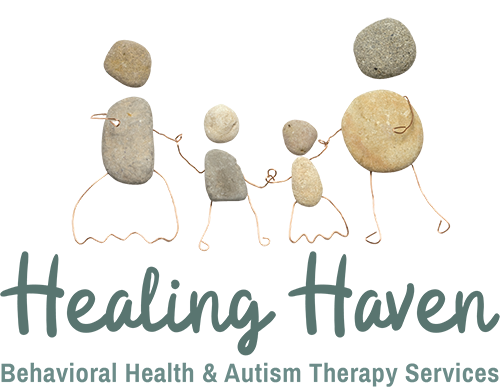
ABA therapy provides many benefits to children with autism in ways both big and small. Typically, this comes down to emphasizing skills that a child needs in two different settings. These settings are school and everyday life (also known as the “natural environment” in ABA). Everyday life includes home and community settings. Learning and practicing skills in both settings are essential to the development of a child with autism.
How ABA Therapy Enhances School Skills
For school-aged kids, some of the most valuable skills they can have are those that help them participate in a classroom or group-setting. While this may not always be an issue for neurotypical kids, it can oftentimes be an intricate challenge for those with autism.
ABA therapy works intensively to ensure a child can follow basic group instructions. For example, lining up at the door with their class or sitting down in their chair when told. It also works to reduce behaviors that may disrupt one’s ability to participate in a group setting.
ABA therapy is not a replacement for school. Instead, it exists simply to compliment school, or help enhance the skills needed to be successful in school.
ABA therapy can, however, act as a great starting point for kids with autism. This is especially true for those who do not have experience in a classroom or group setting. This allows us to work on skills individually, where the child learns and improves that skill through repetition before moving onto a more advanced skill. Additionally, in the ABA setting, the child has the full attention of a single Registered Behavior Technician, or RBT. This, as opposed to a teacher in a full classroom of students, proves to be helpful for children with autism.
In the social and school prep groups offered at Healing Haven, children practice classroom-essential skills in a mock classroom setup. We teach these skills using the foundations of ABA and in a way that allows the child to learn at a pace that aligns with other peers their age.
How ABA Therapy Helps Develop Community Skills
In addition to helping children with autism progress in a school setting, ABA therapy can also play a huge role in helping them excel outside of the classroom. This includes community activities such as grocery shopping, going to the library, running errands, and more.
Depending on the child’s ability level, ABA therapy can help with a wide everything from tolerating doing these activities, to being an active participant. Not only does excelling in these activities benefit the child, but it in turn also positively impacts the the child’s family.
It’s normal for parents of children with autism to shy away from bringing their child with them to run errands or do things in the community. This typically stems from fear of judgement and embarrassment if their child experiences a hard time. That’s why a large part of our mission is to build up the child’s independence in the world. Simultaneously, we coach the child’s family on how to better educate the community and spread acceptance toward autism. Together, these things can help support the child’s dignity. Additionally, it can relieve stress that many parents of children with autism experience daily.
How ABA Therapy Helps Build Everyday Success
When it comes to building everyday success with your child, the key is to practice at every chance available. In many cases, this may look like gradually exposing your child to a specific place or atmosphere before bringing them into it. Our clinical team suggests setting goals to build upon with each trip to a certain location.
In ABA therapy, we give children the chance to practice skills needed for community outings by creating mock environments and scenarios. Your child’s BCBA and Behavior Technician can also target atmospheres and skills that are known to trigger challenging behaviors in your child and teach calming strategies the child can utilize in such instances. This, through exposure and repetition, can better prepare your child for going to specific places in everyday life.
An important piece to remember about this process is to move at your child’s pace. Know when to slow down or create time and space to try again. And be sure to treat it as a success each time your child tries a new step in the process. The time used to practice these steps will pay off when your child can use these skills in the future.
A great tip that we recommend in order to experience success when going on community outings is to listen to your child’s preferences. Going to places your child has a connection with, even if it only has one thing or aspect they like, will motivate them to explore and spend more time there. By doing this initially, you can then expand to places and activities that are less preferred by your child but that are essential for their growth and independence.
Getting Your Child Started with ABA Therapy
Having a dedicated team of professionals can help tremendously when it comes to enhancing school and community skills in your child with autism. By having open, constant communication with all parties involved in your child’s life, you ensure skills taught are practiced across all applicable settings with the same goals in mind.
If you are thinking about enrolling your child in ABA therapy, reach out to us or head to our services page for more information. If you already have a child that’s in ABA therapy, we would love to hear other ways it has helped them learn, grow, and develop independence.
